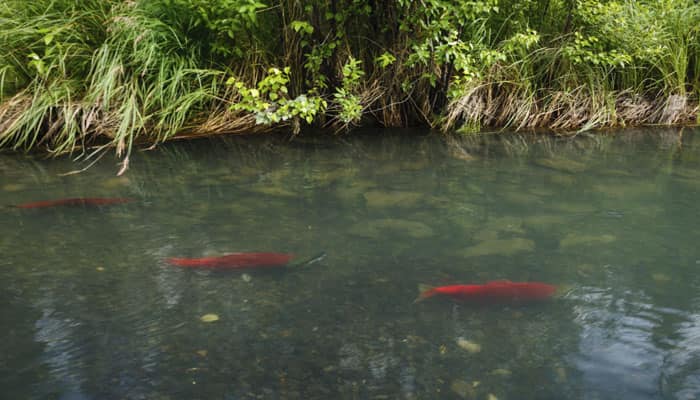New Delhi: Diverse freshwater ecosystems of the Western Ghats and a large variety of species they contain face the "highest level of threat" due to pollution and mining in the world's most heavily populated biodiversity hotspot, according to a study.
The report, published by the International Union for Conservation of Nature (IUCN), says that in most instances the development planning process in the "world's most heavily populated biodiversity hotspot" does not consider the requirements of freshwater ecosystems, mainly due to a lack of adequate information on the distribution of species.
"Although many protected areas are located within or near areas of the richest freshwater diversity, the southern Western Ghats region experiences the highest level of threat to freshwater species," says the study, titled 'Status and Distribution of Freshwater Biodiversity'.
Additional threats include hunting in many parts that have extirpated local populations of several species and groups of terrestrial and freshwater fauna.
It says the highest number of threatened species (40 and 48 species within each sub-catchment) occur in the southern Western Ghats hotspot in Kerala, Tamil Nadu and southern Karnataka.
"Close to 16 per cent of the 1,146 freshwater taxa assessed are threatened with extinction, with a further 1.9 per cent assessed as near threatened. No taxa were assessed as extinct or extinct in the wild," the study says.
According to the report, the main threats impacting freshwater biodiversity in the Western Ghats include "pollution, with approximately 50 per cent of fish, 20 per cent of molluscs, and 21 per cent of odonates threatened, and with urban and domestic pollution ranking as the worst threats followed by agricultural and industrial sources of pollution."
It says biological resource use with 38 per cent of fishes, 17 per cent of molluscs, and 7 per cent of odonates threatened by commercial fisheries and the aquarium trade.
Residential and commercial development, dams and other natural system modifications, energy production and mining are the main threats impacting freshwater species of the hills. The study conducted by the IUCN Global Species Programme's Freshwater Biodiversity Unit, in collaboration with the Zoo Outreach Organization (ZOO), suggests a combination of strategies to restore health of the ecosystem.
It suggests improved enforcement of pollution laws, best management practices for crop and livestock production, effective effluent treatment for the industries located within river basins, promotion of organic cultivation, and better solid waste disposal protocols.
The Western Ghats is one of the world's most heavily populated biodiversity hotspots providing for and supporting 400 million people through water for drinking, transport, irrigation, and hydroelectric power, together with food and resources to sustain livelihoods.
The hills have also lost nearly 50 per cent of forest cover since the early 1900s and the trend is continuing with increased fragmentation and encroachments.
















